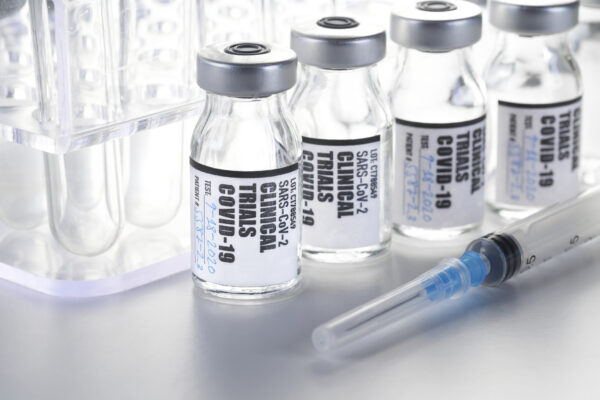
One of the leading companies developing a vaccine against Covid-19 has signed a deal with the federal government to provide up to 500 million doses.
In an announcement Tuesday evening, Cambridge, Massachusetts-based Moderna said the government would award it up to $1.525 billion for an initial 100 million doses of its SARS-CoV-2 vaccine, mRNA-1273, with an option to purchase 400 million more. The new award, along with previous financial commitments, brings the total amount of money the company has raised from federal authorities to $2.48 billion. The latest deal is part of Operation Warp Speed, the government’s accelerated vaccine development effort.
Shares of Moderna were up nearly 6% in pre-market trading on the Nasdaq Wednesday morning.
“We are advancing the clinical development of mRNA-1273 with the ongoing Phase III being conducted in collaboration with NIAID and BARDA,” Moderna CEO Stephane Bancel said in a statement, referring to the National Institute of Allergy and Infectious Diseases and the Biomedical Advanced Research and Development Authority, respectively. “In parallel, we are scaling up our manufacturing capability with our strategic partners, Lonza, Catalent and Rovi, to address this global health emergency with a safe and effective vaccine.”
A little more than two weeks ago, Moderna announced that it had secured $472 million from BARDA, along with the launch of the Phase III trial, COVE, which will enroll 30,000 participants. It had previously secured $483 million, also from BARDA.
Moderna is one of several companies with which the federal government has placed large orders for vaccines against Covid-19.

A Deep-dive Into Specialty Pharma
A specialty drug is a class of prescription medications used to treat complex, chronic or rare medical conditions. Although this classification was originally intended to define the treatment of rare, also termed “orphan” diseases, affecting fewer than 200,000 people in the US, more recently, specialty drugs have emerged as the cornerstone of treatment for chronic and complex diseases such as cancer, autoimmune conditions, diabetes, hepatitis C, and HIV/AIDS.
Two weeks ago, French drugmaker Sanofi and British drugmaker GlaxoSmithKline secured $2.1 billion from the federal government to provide 100 million doses of their vaccine, which is expected to enter a Phase I/II clinical trial in September. And on July 22, Pfizer and its Germany-based partner, BioNTech, got $1.95 billion to supply their vaccine.
Moderna’s vaccine is designed to work by targeting messenger RNA, outside the nucleus of cells, a mechanism of action similar to that of Pfizer and BioNTech’s vaccine, BNT162b2, which is now in a Phase II/III study.
Photo: Bill Oxford, Getty Images













